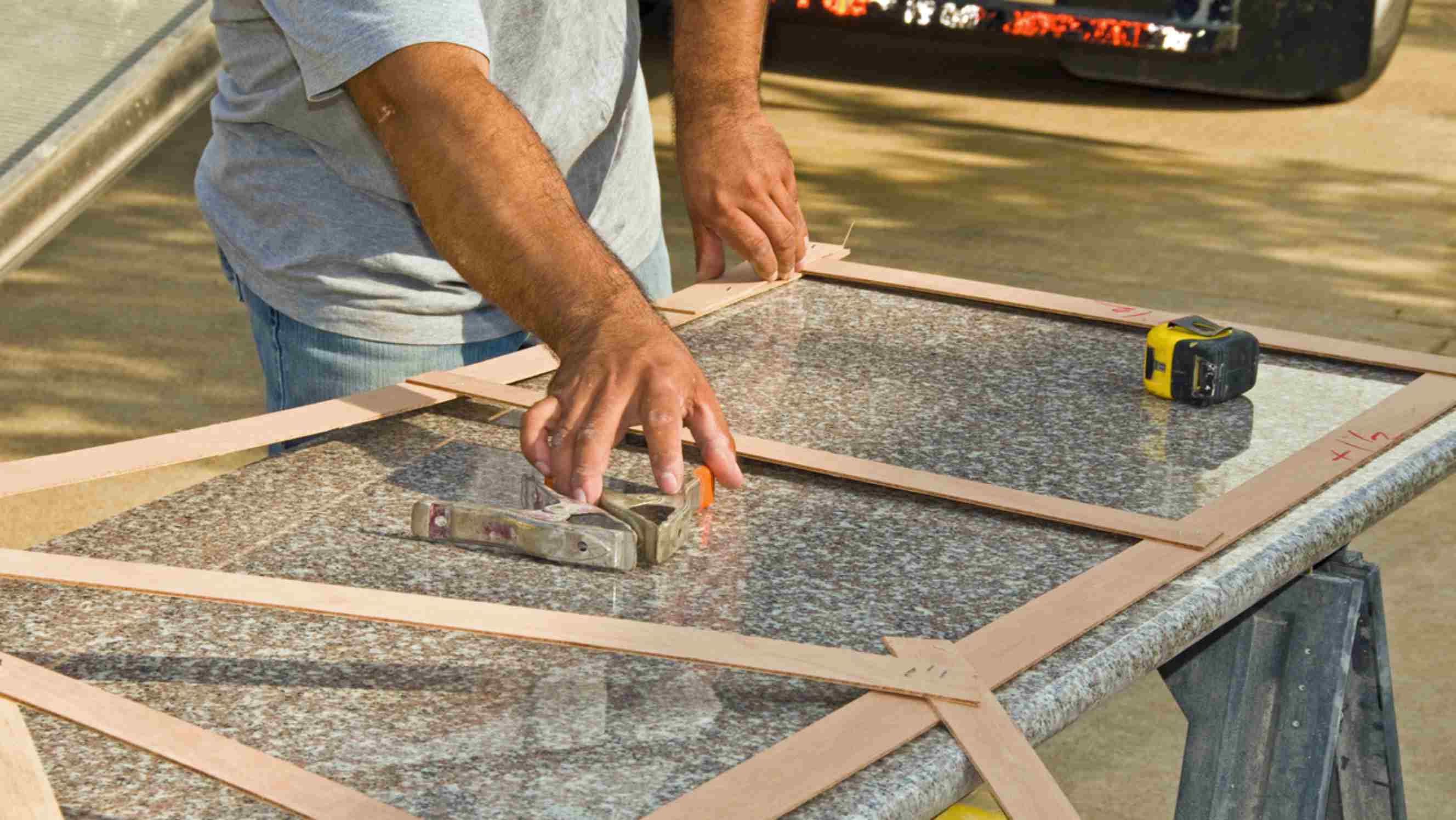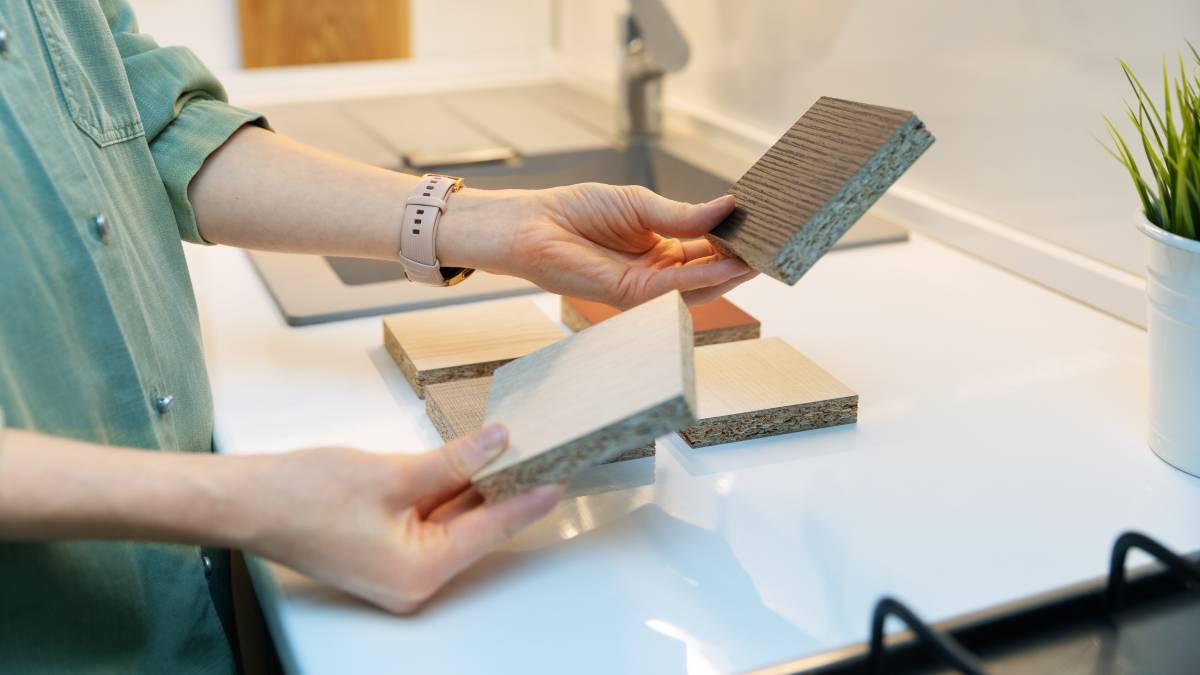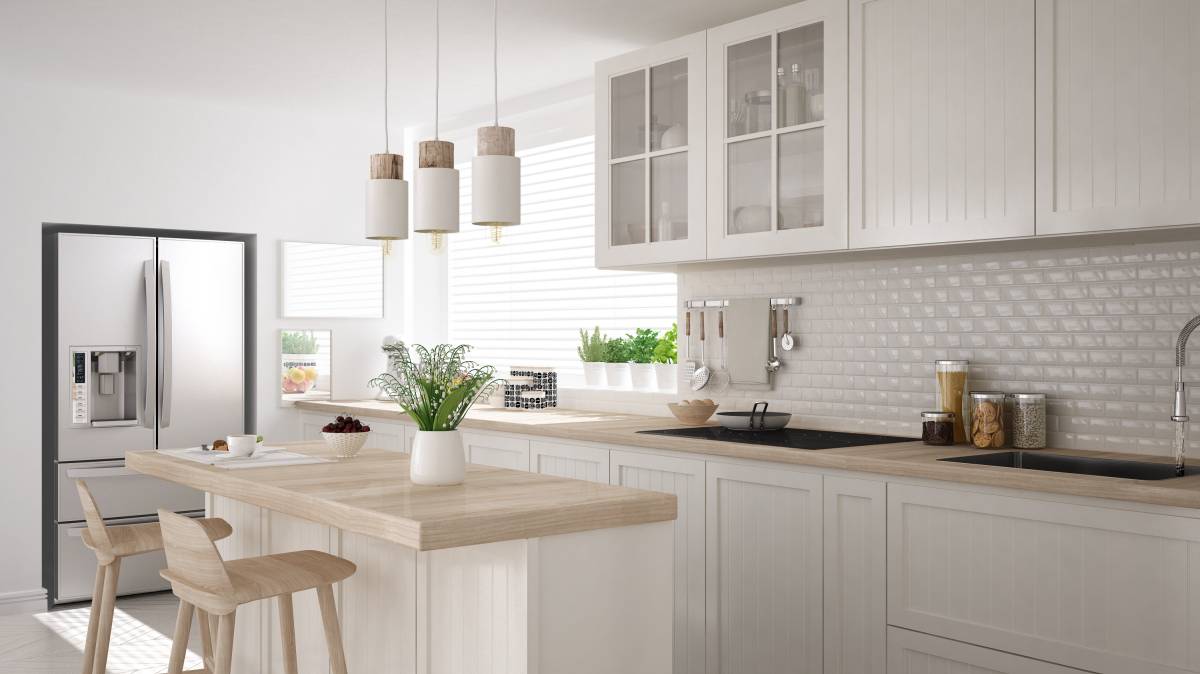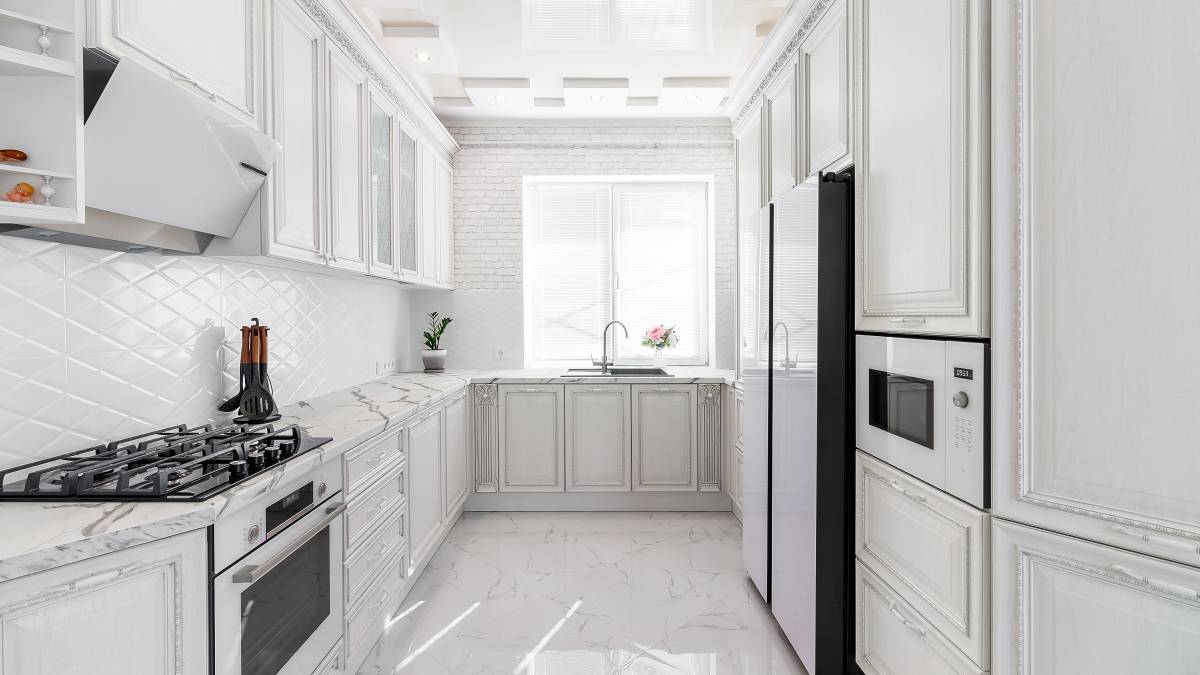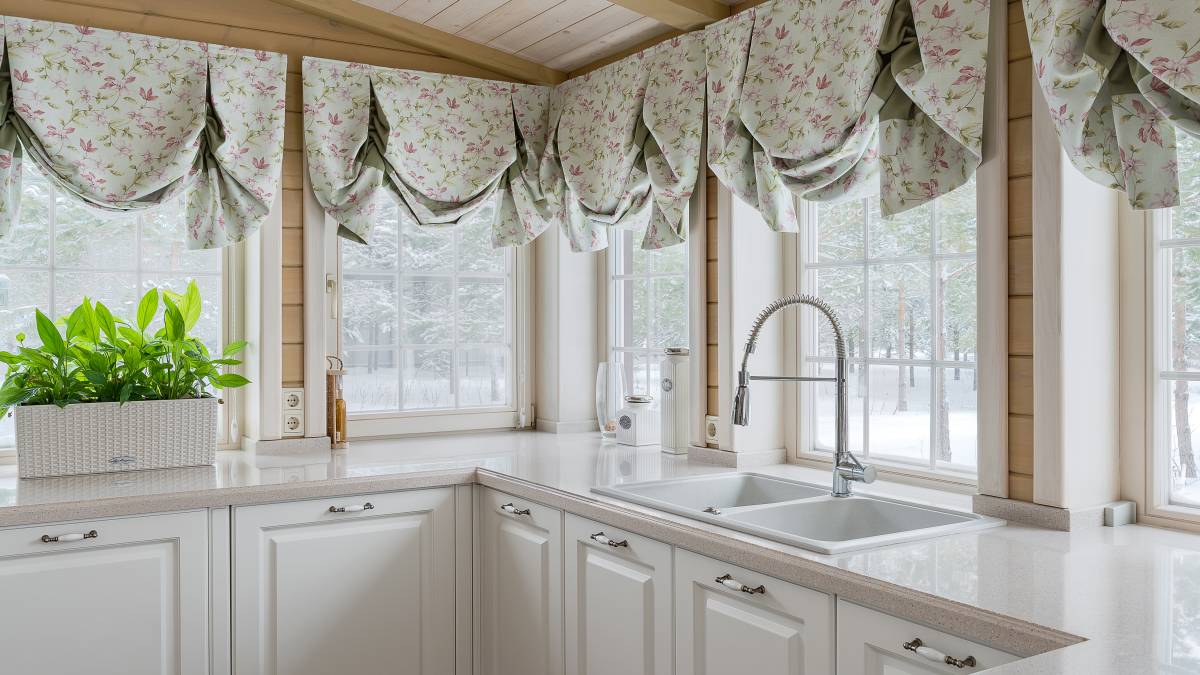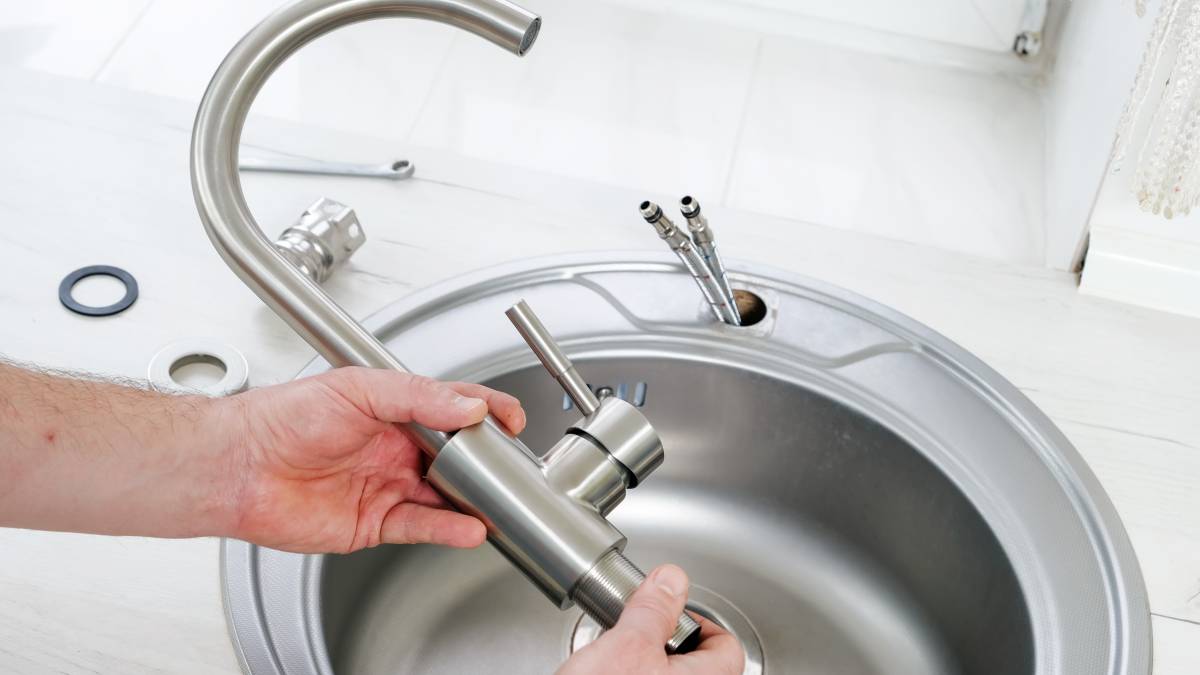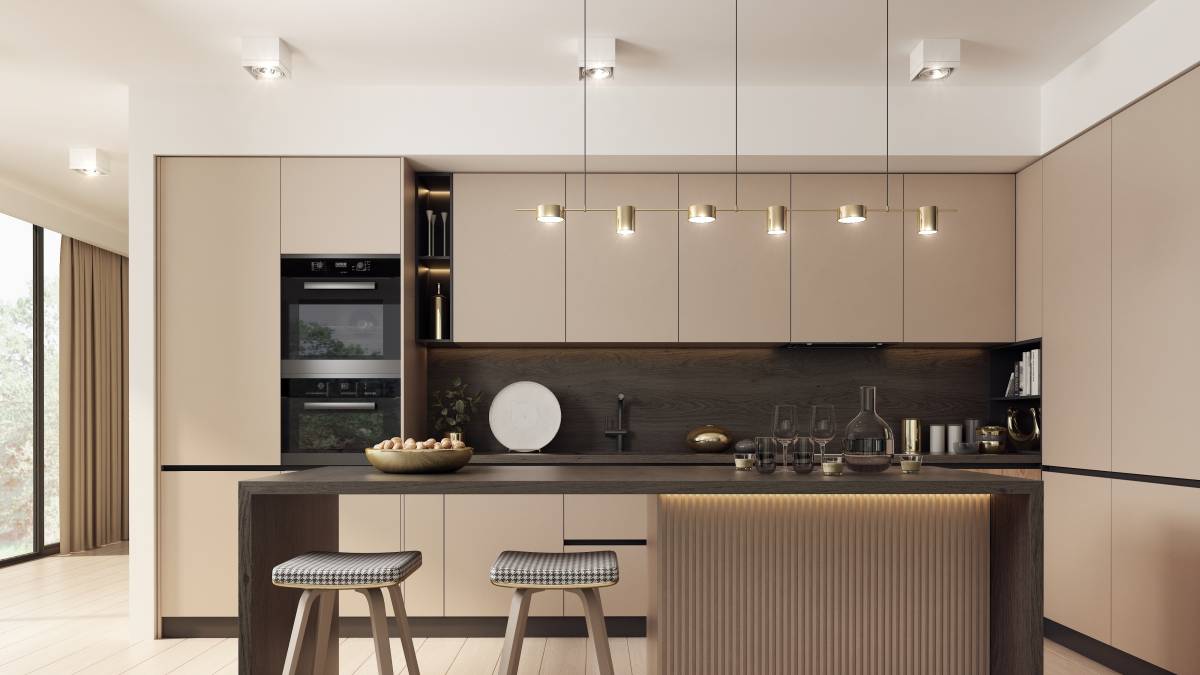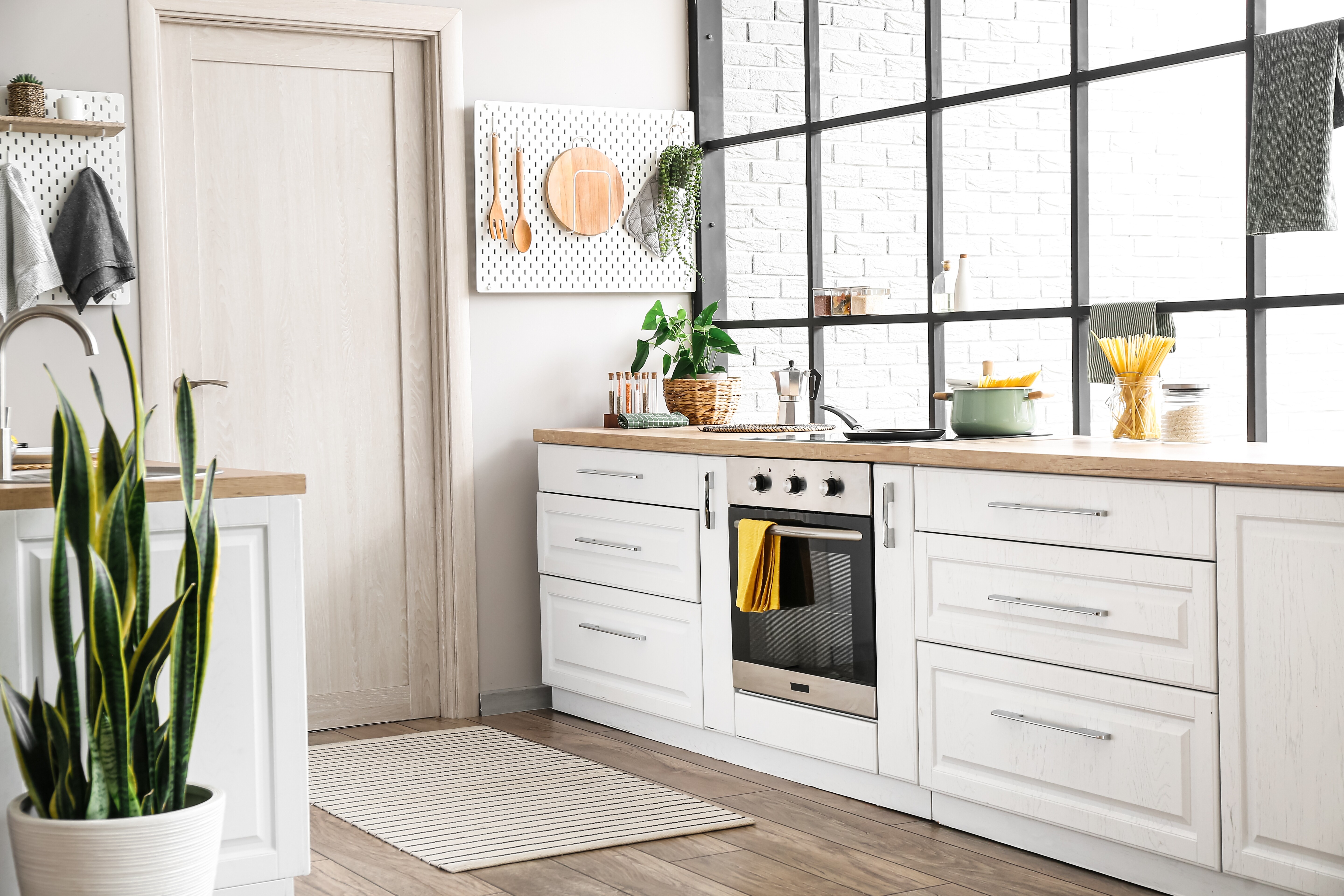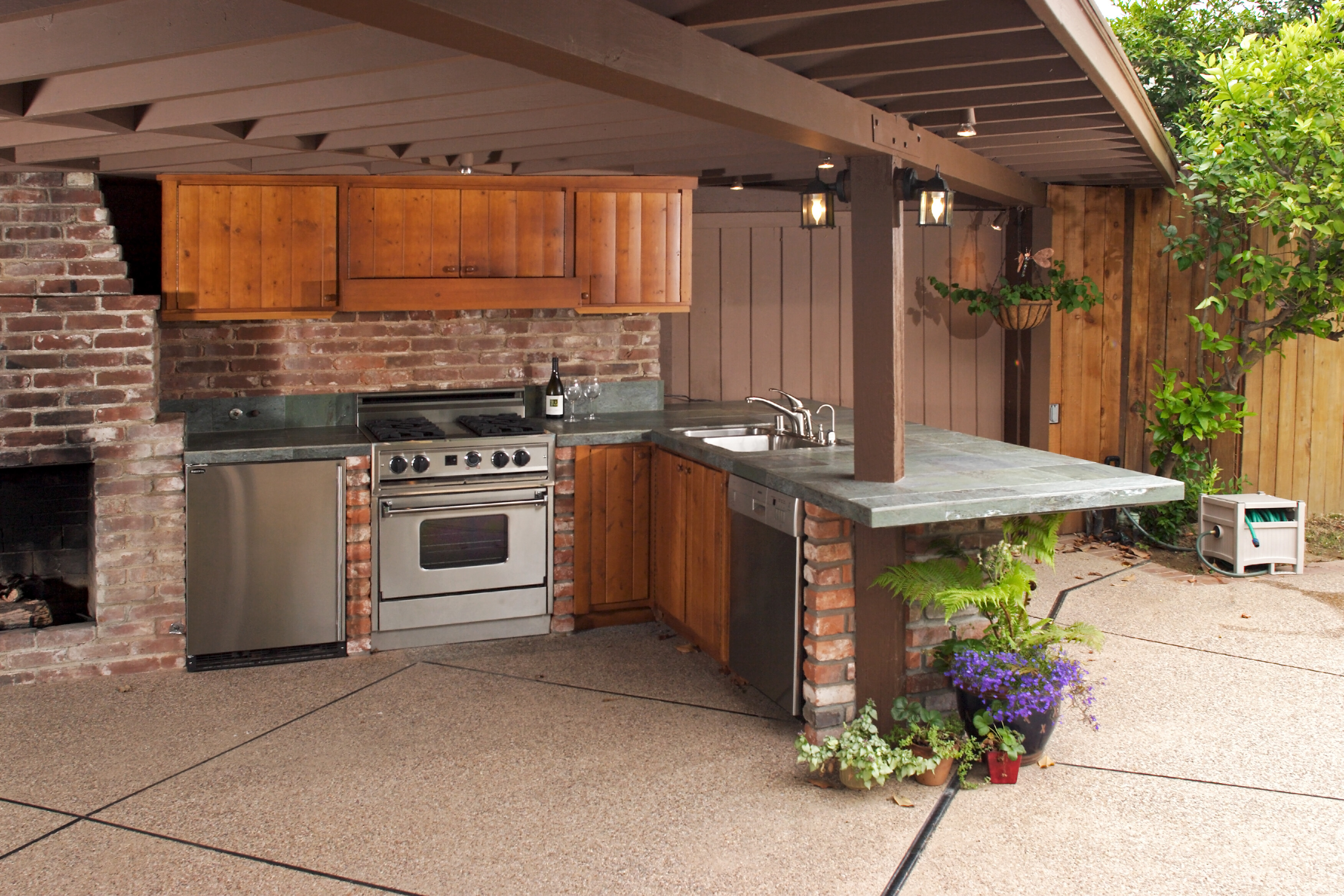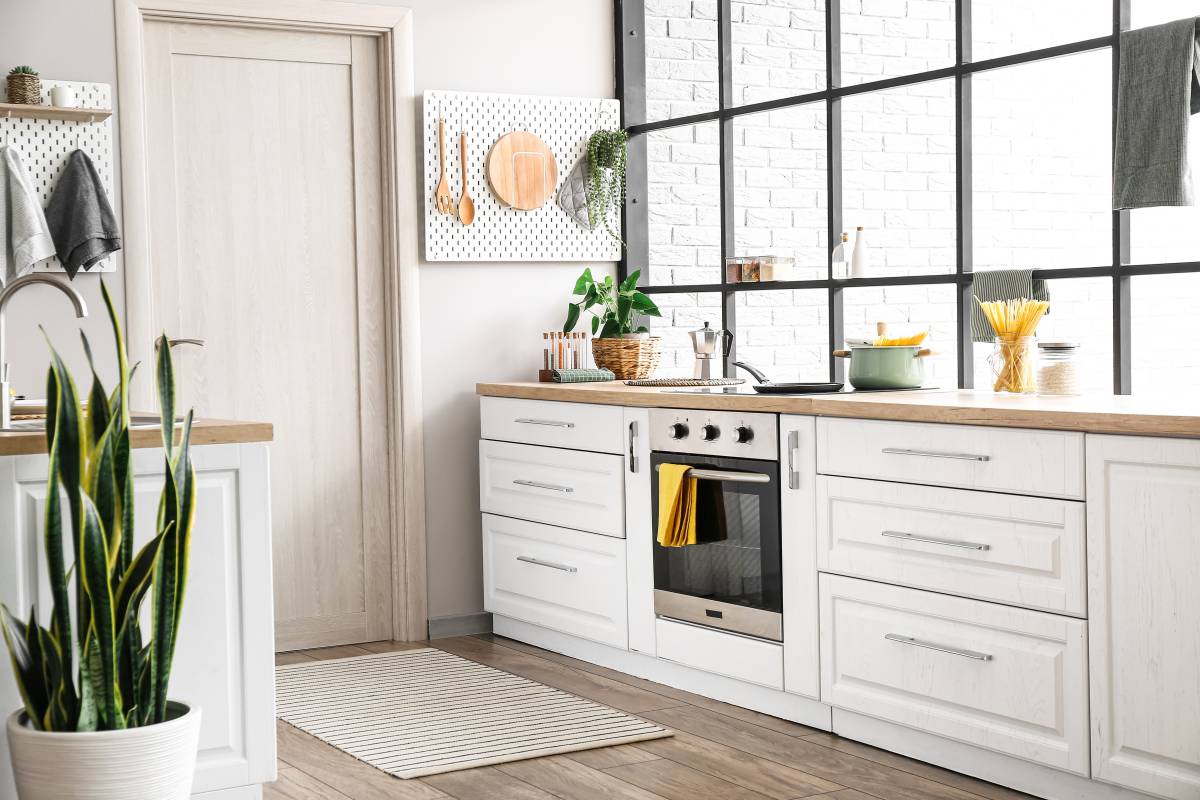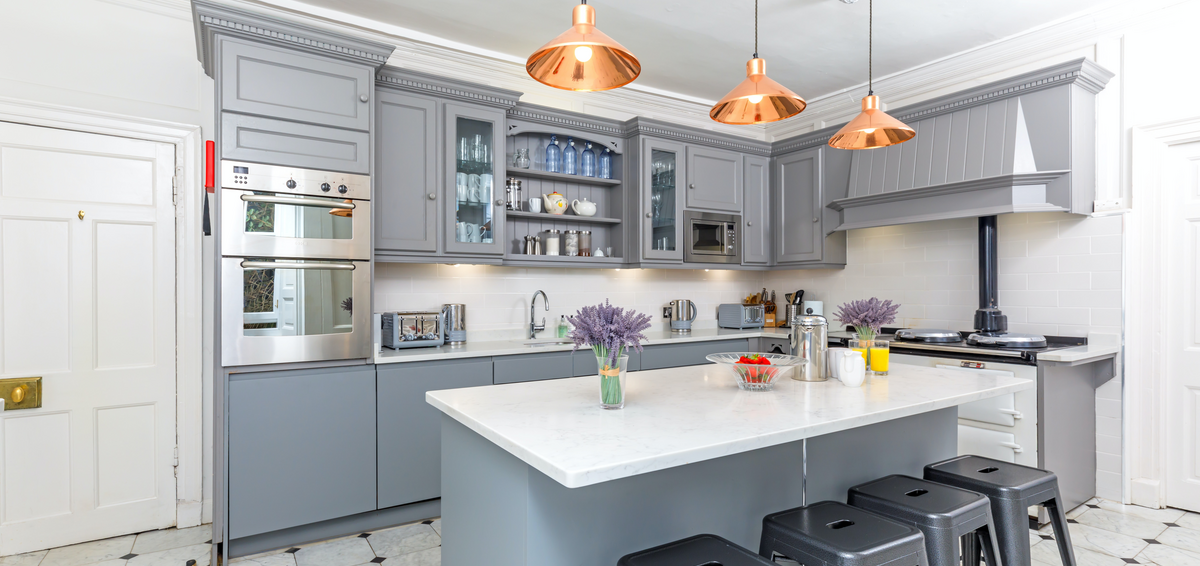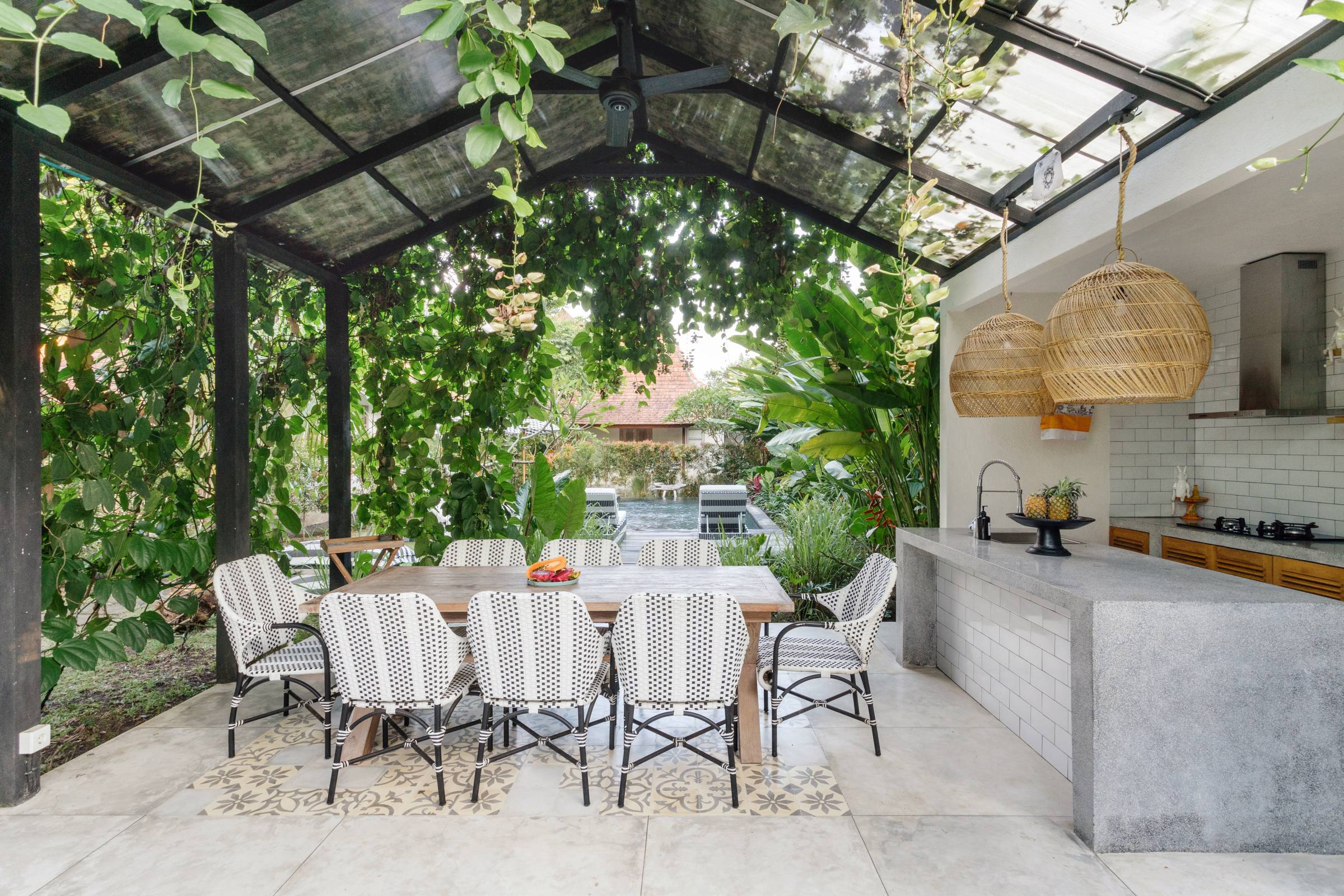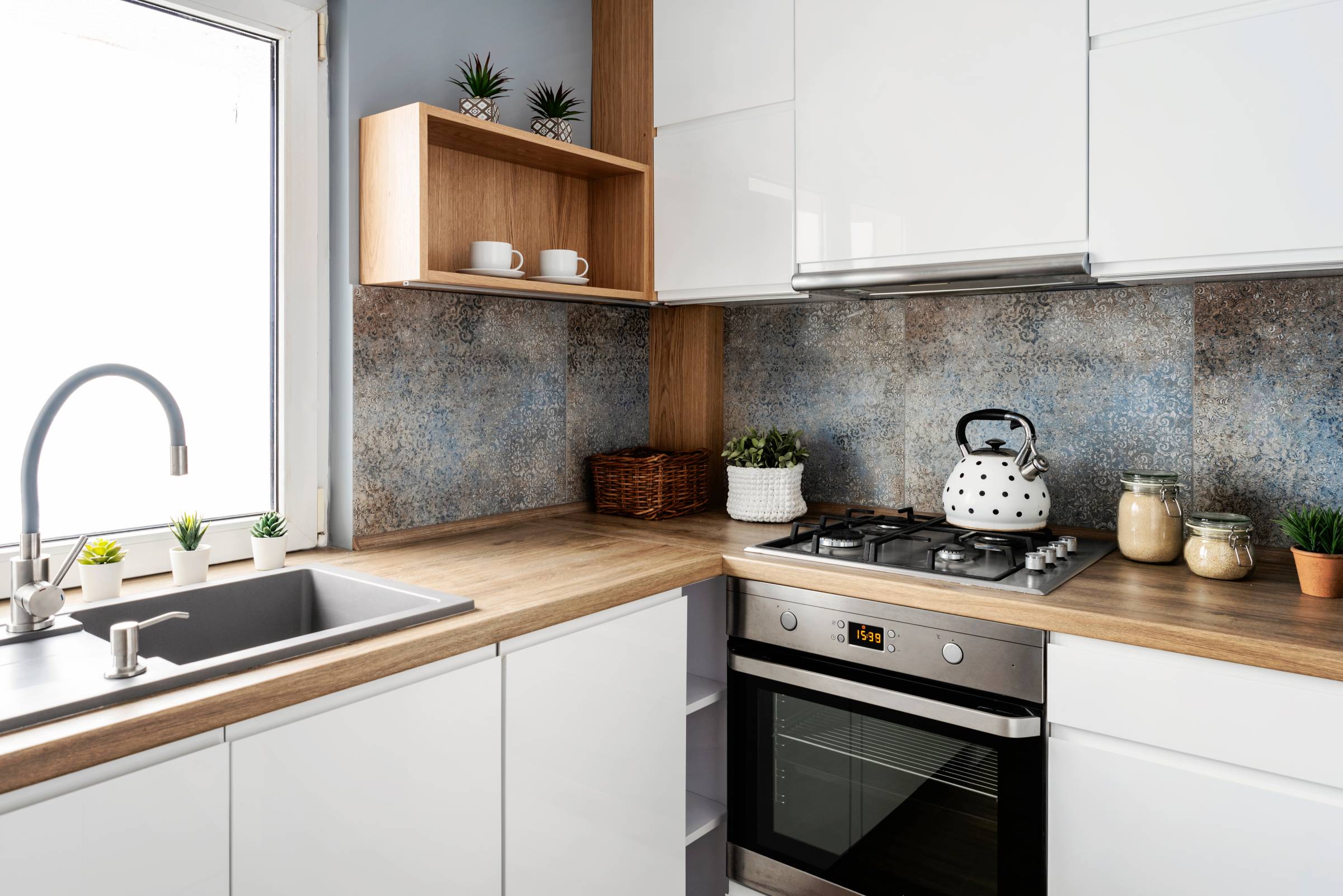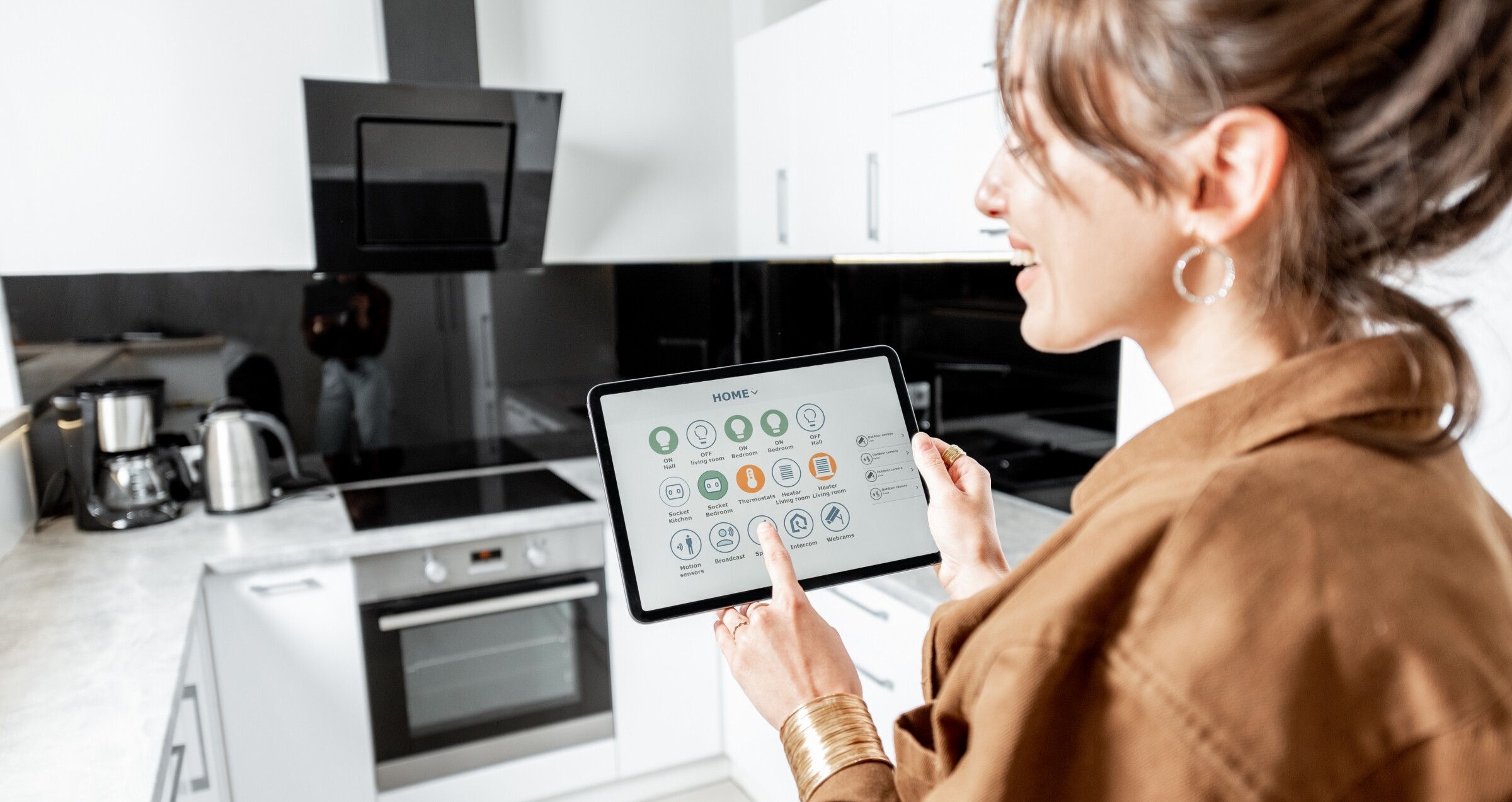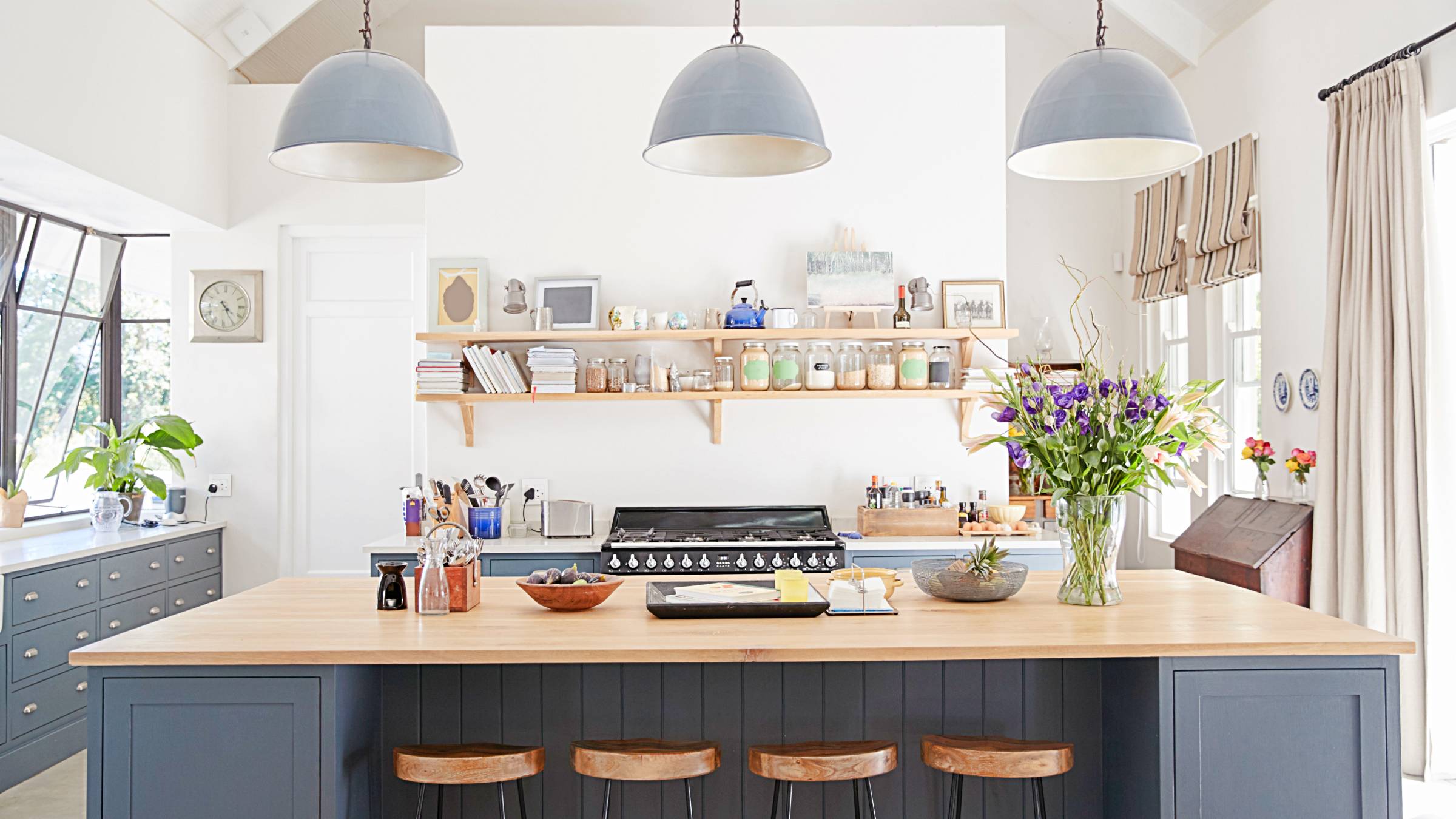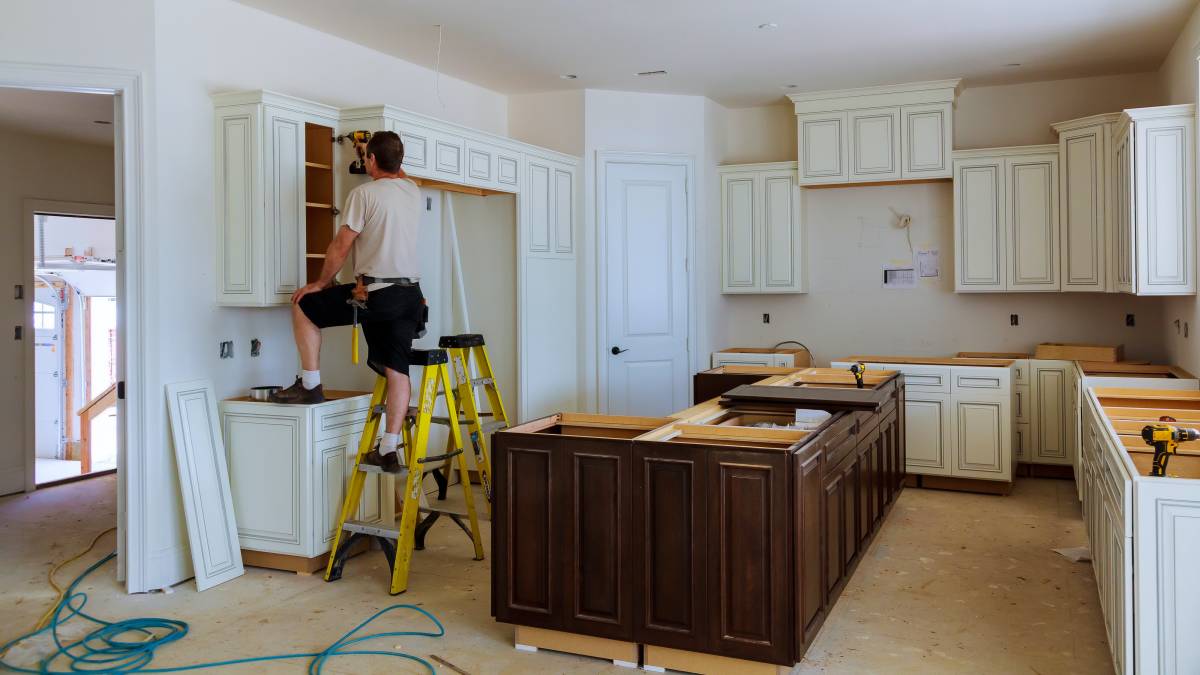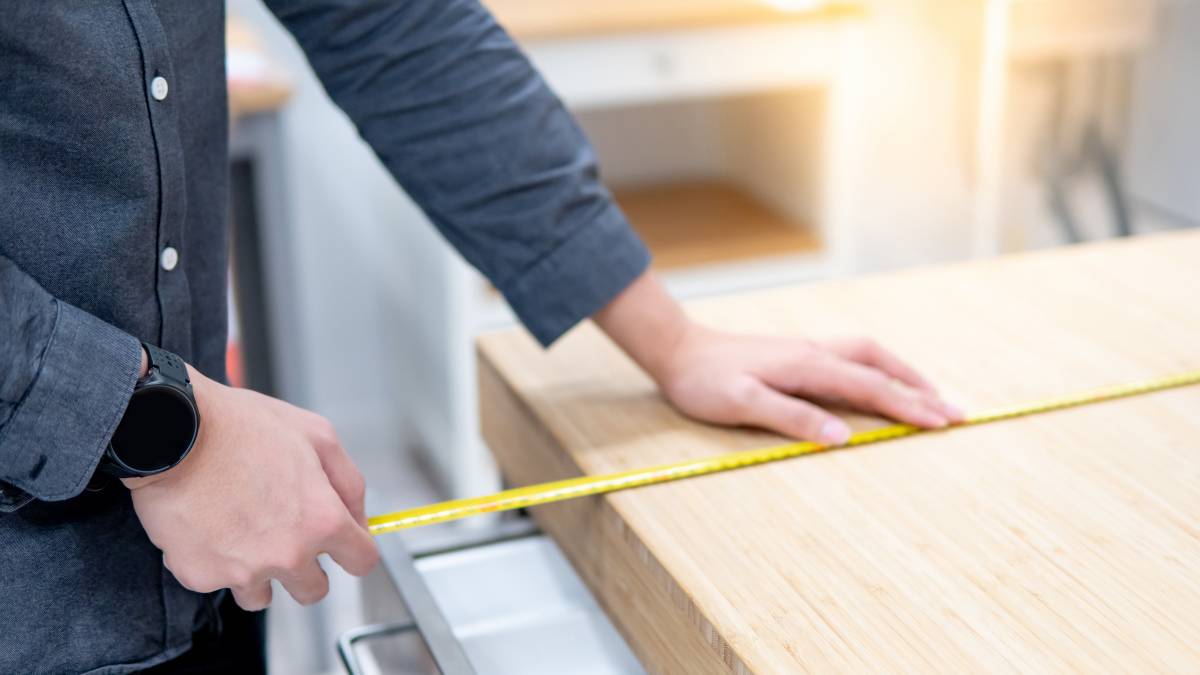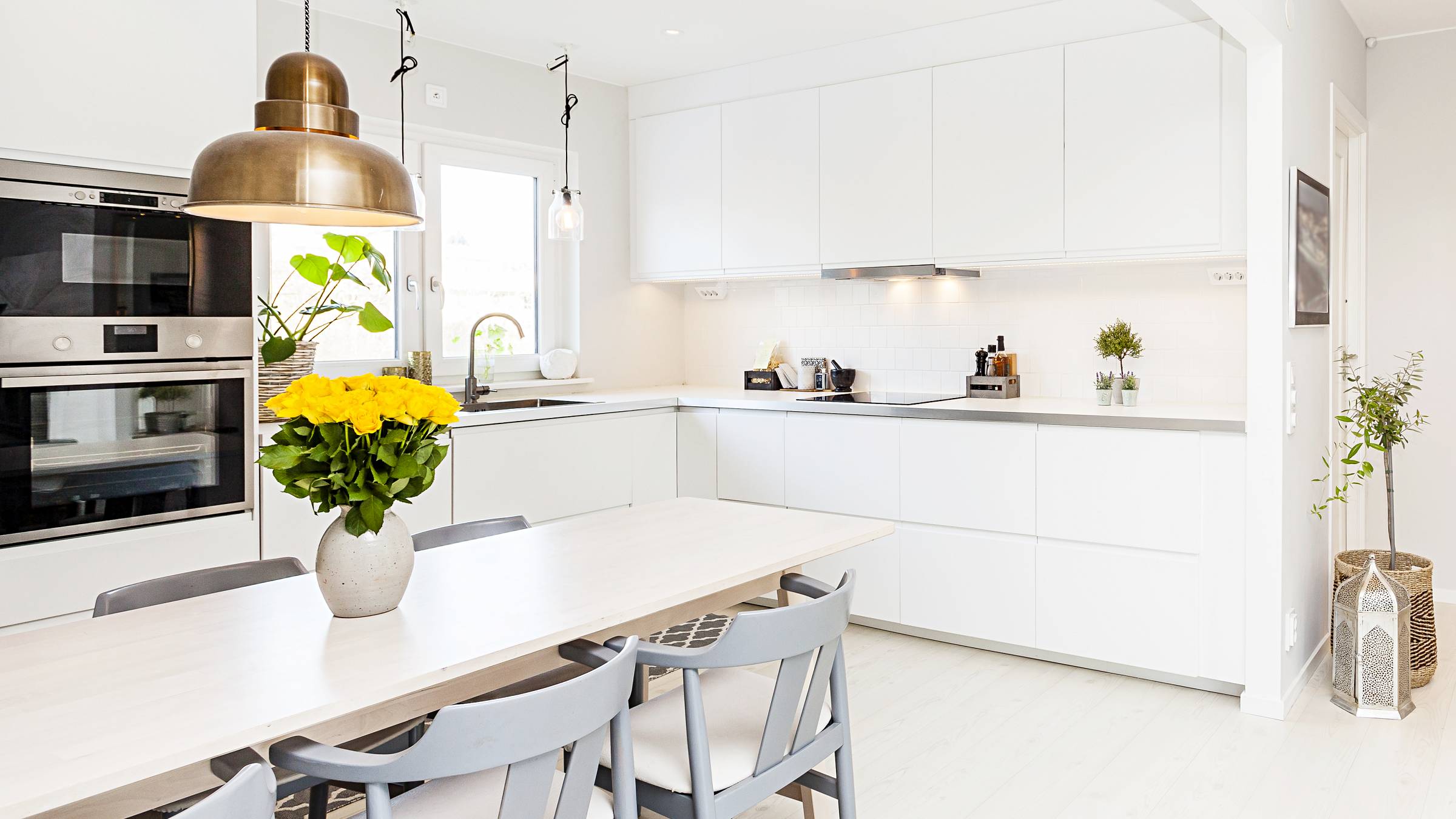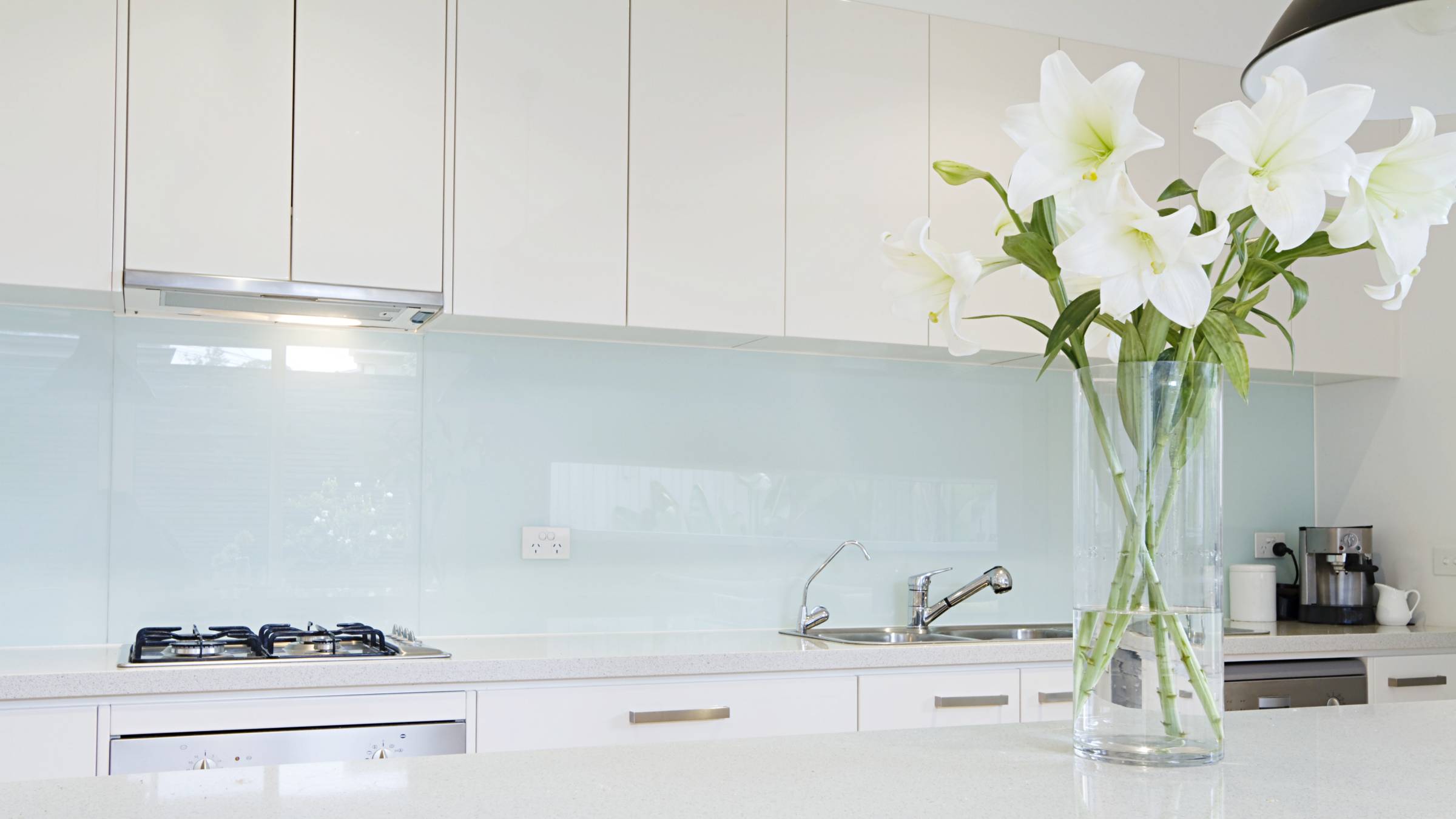- Home/
- Comparisons/
- Kitchen Renovation/
- Cupboard vs Cabinet
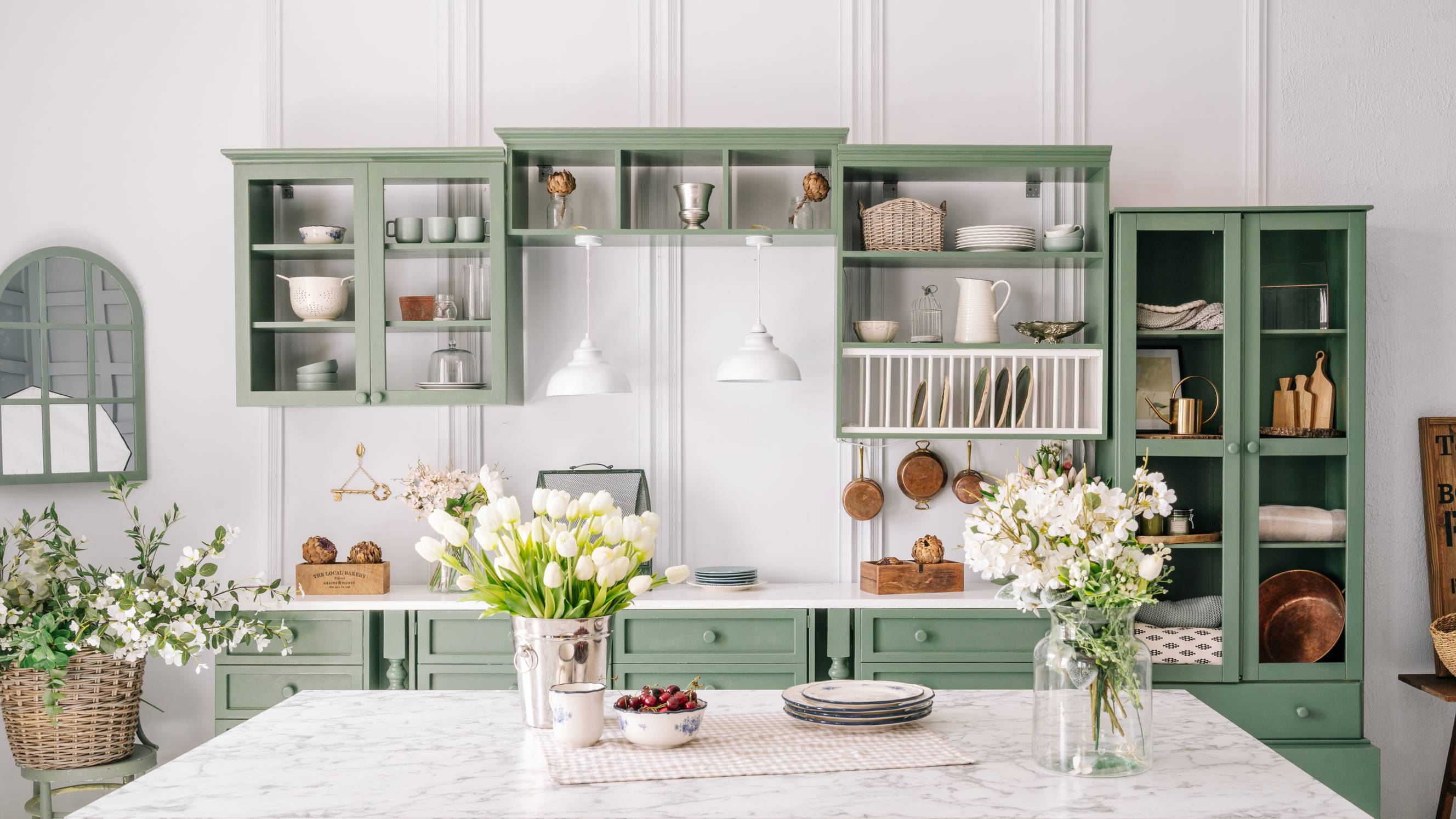
Cupboard vs cabinet: Which is better for your kitchen?
Comparing kitchen cupboards and cabinets based on cost, aesthetics, and more
Hire a kitchen renovatorLast Updated on
Key Facts
- A cupboard is a freestanding furniture piece with doors, shelves, and drawers for storing kitchenware. It has two types: airing cupboards for housing heating units or drying clothes and linen cupboards for storing towels and blankets.
- A cabinet is a built-in kitchen storage unit with embellished exteriors and pull-out shelves. It has two variations: wall cabinets for storing dinnerware and base cabinets for keeping bulky cookware and appliances.
Cupboards and cabinets help maximise storage space and incorporate a seamless look in the kitchen. Because they function similarly, most people would use these two terms interchangeably. However, they differ in many aspects.
In this cupboard vs cabinet guide, discover the unique characteristics of the two so you can easily decide which furniture you should use for your cooking and dining space.
What is a cupboard?
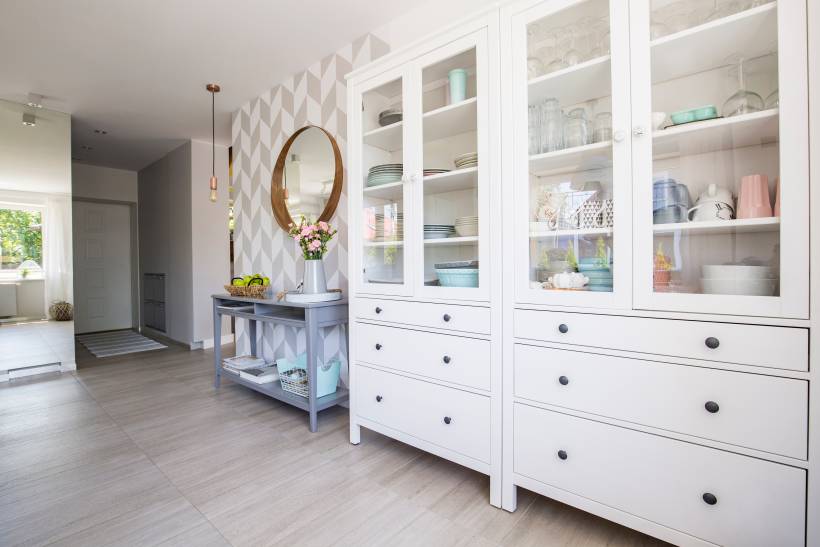
A cupboard has an enclosed storage space with one or more doors, as well as shelves and drawers to store plates, mugs, and other kitchen tools. It comes in various styles, with most vintage cupboards having a freestanding build and glass panel doors to showcase exquisite dinnerware and fine china.
Meanwhile, modern cupboards sit flush against walls and have minimalist wooden doors to hide clutter in the kitchen. Note that cupboards are not limited to kitchens since they come in many types.
Airing cupboard
An airing cupboard is a small room that stores a boiler or central heating unit. This type usually has slatted shelves inside for homeowners to hang their wet clothes and towels and let them dry thoroughly during winter.
Linen cupboard
A linen cupboard can either be standalone or built-in furniture with shelves. It is used to store towels, blankets, and tablecloths, which is why many homeowners place their linen cupboards in kitchens, bathrooms, and bedrooms.
What is a cabinet?
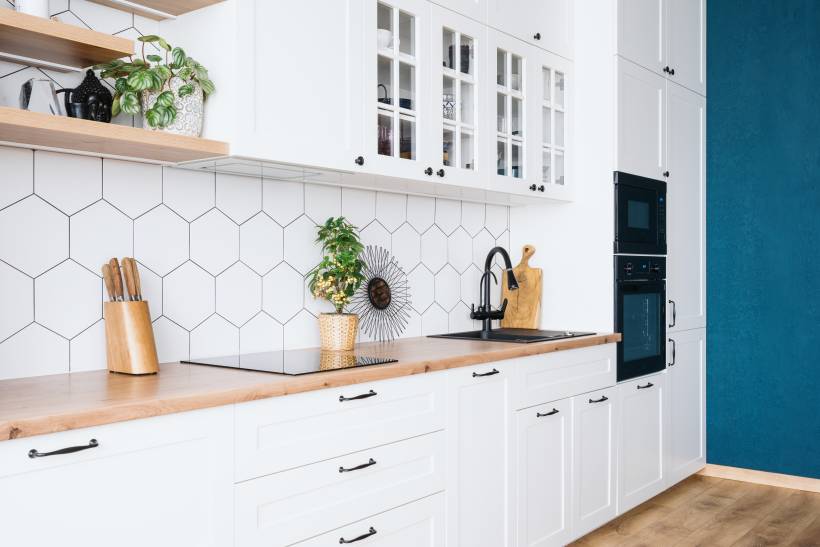
Like cupboards, cabinets have doors, but they typically are built into a wall. Moreover, some modern kitchen cabinets have embellished exteriors with space-saving pull-out shelves for added convenience.
You can find two kinds of built-in cabinets in kitchen and dining spaces. The first is a wall or upper cabinet to store plates, cups, and other dinnerware. Some also use it to store spices and small kitchen appliances. Next is a base or bottom cabinet for bulky cookware, heavy cooking appliances, and other kitchen essentials.
Cabinetry is another term for cabinets. It is commonly used to describe a collection of cabinets in homes and offices.
Cabinet vs cupboard: Which is better for your needs?
Get to know whether a cabinet or cupboard is the ideal kitchen storage solution for you as we break down their contrasting characteristics into each factor.
In terms of cost
The cost of installing kitchen cupboards and cabinets depends on the quality, style, and materials used. But between the two, cupboards are more affordable due to their simple design.
In addition, flat-pack cupboards with simple boxes and legs are priced at £20 and £90 per unit. You can add doors, which would cost around £20 to £60. Meanwhile, the price for tall cupboards or larder units can be as low as £100. This is much cheaper than bespoke kitchen cabinets, which are around £12,000 to £25,000.
Although pre-assembled stock cabinets cost less, they usually are sold as a set. You also have to hire cabinet installers to ensure they properly fit into the kitchen walls, thus adding to the overall cost.
In terms of aesthetics
Kitchen cabinets appear more lavish than cupboards due to having more decorative door designs and finishes. Some popular kitchen cabinet designs include classic shaker doors with a raised rectangular frame, beadboard doors with slatted panels, multi-paned glass doors, and frameless slab doors.
Moreover, the materials used in kitchen cabinets are not limited to solid and modified wood, unlike most cupboards. Others are made of stainless steel or laminate, making them ideal for modern kitchens.
On the contrary, most freestanding kitchen cupboards have a traditional look and feel due to having decorative coverings or end panels, ornamental mouldings, and glass pane doors. This is why many kitchen designers recommend cupboards for homeowners who want to add some vintage touches to their cooking spaces.
In terms of construction/fitting complexity
Regarding kitchen installations and fitting, cupboards gain the upper hand. Most have a freestanding, pre-assembled design, so you only have to ensure your kitchen floors are even to use a cupboard. Moreover, some larder cupboards are modular, allowing you to integrate them into modern kitchen spaces easily.
On the other hand, fitting kitchen cabinets are more complex due to their built-in design. Although some wall-mounted cabinets are also modular, installing them requires extra work. Your kitchen walls should be even, and the cabinets should have a service gap or a small space in between to hide electrical wirings and pipes and guarantee proper alignment.
To ensure proper cabinet installation and fitting, consider contacting kitchen installation experts before attempting to DIY.
In terms of storage capacity
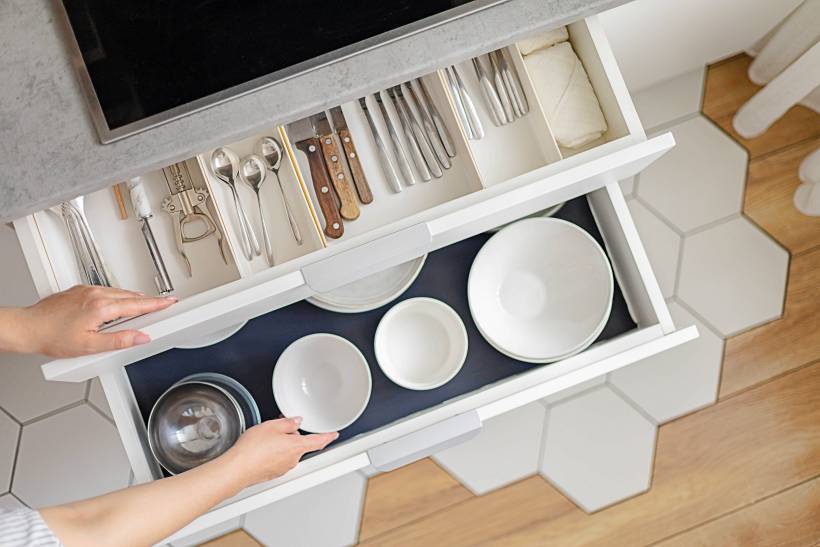
Because of their tall frame, cupboards offer more storage space for food and kitchen items. Not to mention, some larder cupboards have ventilated doors with shelves made of slate or marble slats. This creates a cool and dry place for storing onions, potatoes, and other dried food items.
Meanwhile, although built-in kitchen cabinets are smaller, they usually come in a set of storage units, providing a versatile storage space in the kitchen. You can divide your kitchen and cooking essentials by placing your fancy dining ware in glass-paned wall cabinets while keeping pots, pans, mixing bowls, and cleaning supplies in base cabinets.
If you need help arranging your food and cooking essentials in kitchen cabinets and cupboards, seek help from professional organisers. They can give you expert insights on various kitchen storage ideas and solutions.
In terms of versatility
A kitchen cupboard is more versatile in usage and function because, as mentioned earlier, it comes in many types. It can be an airing cupboard for housing combi boilers and wet clothes or a linen cupboard for storing sheets and tablecloths. Also, in the UK, it is common to have airing or linen cupboards in kitchens due to houses having limited space.
However, kitchen cabinets gain an upper hand when it comes to versatility in style. Cabinet makers create custom pieces that give homeowners more freedom in choosing the material, colour, finish, and design.
Kitchen cabinets are also a good option if you plan to upgrade the look of your cooking space eventually. You don’t have to undergo a complete kitchen renovation since you may do a cabinet refacing. This means changing only the cabinet doors and handles to incorporate a new kitchen style.
In terms of durability
Since cupboards and cabinets are made from almost the same materials and require refinishing and painting for maintenance, determining which lasts longer can be difficult. However, you can figure out the durability of each kitchen storage piece by learning how they are placed differently in the kitchen.
You will find that most cupboards are placed where there is less sunlight to keep a cool and dry temperature for the food stored inside. Because there is no direct sun exposure, cupboards are less susceptible to structural damage.
Whereas in kitchen cabinets, their location varies. Some built-in cabinets are placed above the worktop and sink. Since they are hanging on the wall, gravity may put extra pressure on the cabinets, causing them to fall eventually.
Base cabinets are less durable because they are exposed to moisture, especially those near the sink and stove. If you have wooden cabinets, moisture can cause them to warp and the paint to chip off.
In terms of eco-friendliness
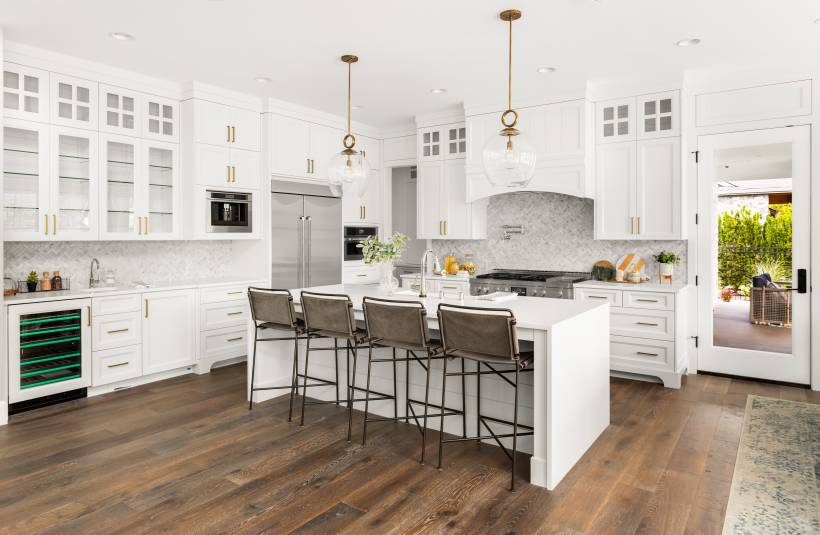
Cupboards are great for building a sustainable kitchen space. You can find some antique hutches that can be repurposed as kitchen cupboards. Purchasing vintage and secondhand furniture pieces such as these is kinder to the planet.
As for kitchen cabinets, they are eco-friendly because you can reface them, as mentioned earlier. As such, you don’t have to throw away all your old cabinets, helping reduce landfill waste.
Achieve a spacious and organised kitchen with Airtasker
Knowing the difference between a cabinet and a cupboard is crucial in kitchen renovations because they take up most of your space. With Airtasker, you can hire experts in kitchen design. Taskers can help you choose and fit the best storage solution for your food prep area.
Cupboard vs cabinet
| Kitchen Cupboard |
Kitchen Cabinet |
|
|
Cost |
More affordable |
More expensive |
| Aesthetics | Traditional, vintage appearance |
More decorative and modern |
|
Construction/Fitting Complexity |
Easier to integrate in kitchens, thanks to its standalone design |
Construction and fitting are more complex due to its built-in design |
|
Storage Capacity |
Offers more storage space due to having a tall frame |
Offers a versatile storage space |
|
Versatility |
Versatile in function |
Versatile in design |
|
Durability |
Lasts longer because it is placed where there is less sunlight |
More susceptible to water damage and moisture |
|
Eco-friendliness |
Has antique, reusable options |
Allows cabinet refacing, making it sustainable |
FAQs on cupboards and cabinets
Yes, because cupboards and cabinets serve the same purpose of providing storage space in the kitchen. Additionally, cupboards have drawers and shelves, much like kitchen cabinets.
Yes, especially if it has a modular design. When converting a cupboard into a cabinet, assess its structure first, then remove or add shelves or partitions. You can also change the door style and refinish or paint as needed for a cohesive look.
However, before attempting to DIY, consider seeking professional help from cabinet makers to ensure your cabinet or cupboard is built correctly.
If you have a traditional cupboard with glass-pane doors, it is best to store decorative dishes, plates, bowls, cups, and glassware. You can also store dry goods, canned food, spices, and snacks in cupboards since they work like kitchen pantries with marble slats.
Whereas for kitchen cabinets, the items are divided into two. Dinnerware and food storage containers such as plastic, glass jars, and Tupperware go to upper cabinets, while bulky cookware and kitchen appliances go to lower cabinets.
Locking mechanisms for both cupboards and cabinets are similar. However, since cupboards are mainly used at home, where security is not a primary concern, they have locks with a more basic design.
Meanwhile, cabinets have a more robust locking mechanism, especially in commercial and industrial settings. This includes combination locks, digital keypad locks, and biometric locks.
Find kitchen renovators, fast
Post a task
Related articles
Related price guides
